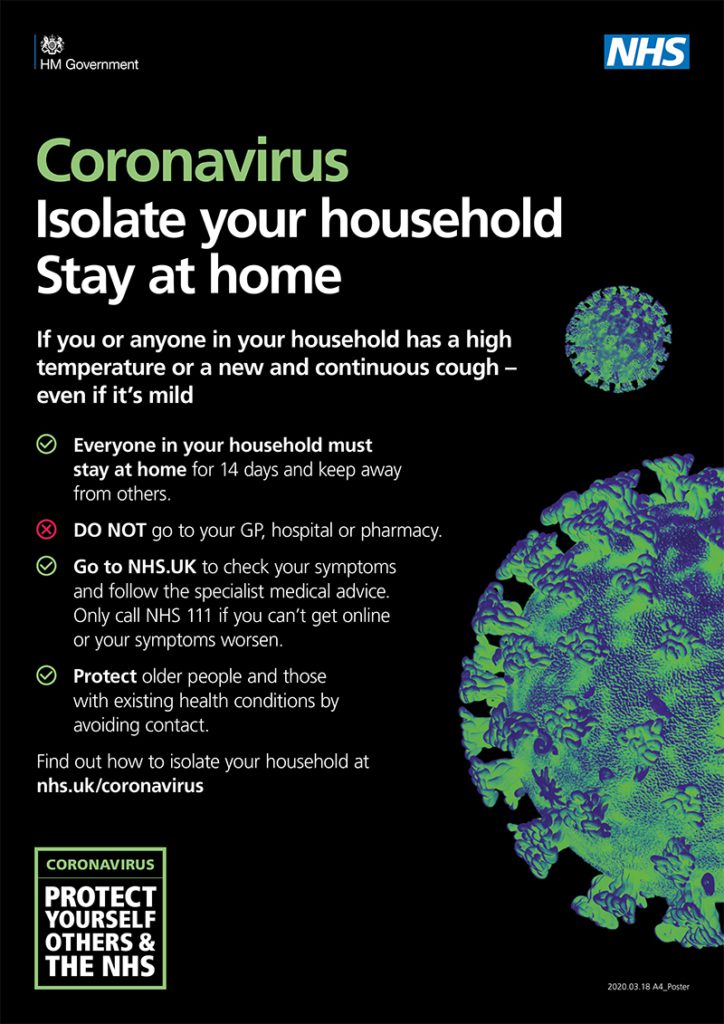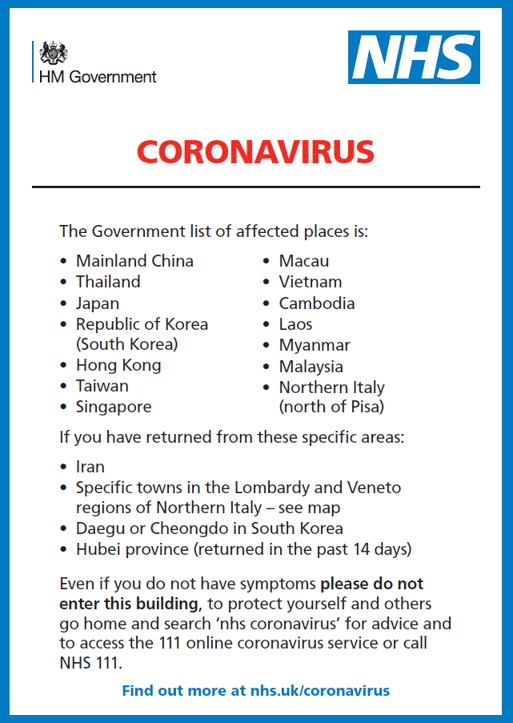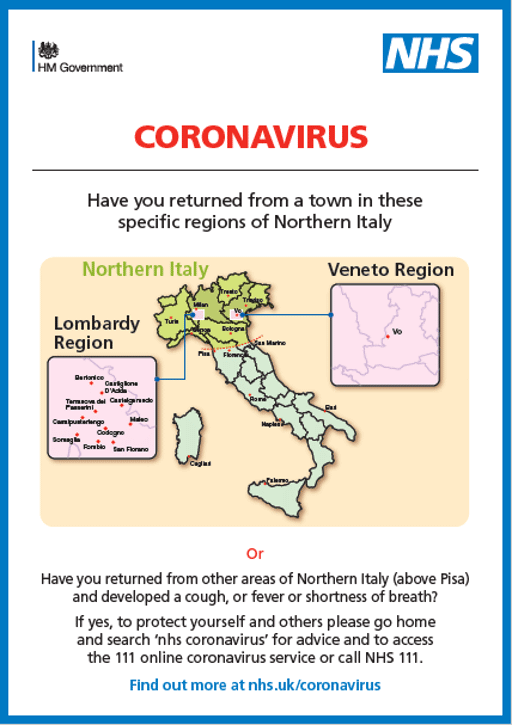Coronavirus (COVID-19)
We are now offering remote consults with Pain Consultants during COVID-19 period – for further information and advice: Appointments and Clinics during the Coronavirus pandemic
 If you have symptoms of Coronavirus infection (COVID-19), however mild, stay at home and do not leave your house for 7 days from when your symptoms started.:
If you have symptoms of Coronavirus infection (COVID-19), however mild, stay at home and do not leave your house for 7 days from when your symptoms started.:
- Cough
- Fever
- Shortness of breath
If you have had contact with somebody with Coronavirus or have been to an affected area (see areas below), stay at home for 14 days.
If you have any minimally invasive procedures booked with us at the Weymouth Street Hospital, you must be symptom free for 14 days prior to the procedure. Please contact us to confirm this is the case.
Protect yourself and others, please stay at home, self-isolate and search ‘NHS Coronavirus’ for advice. Please only call NHS 111 if your symptoms begin to concern you or become unmanageable.
The use of anti-inflammatories with COVID-19
Currently there is no published scientific evidence that Ibuprofen and other anti-inflammatories increase the risk of catching COVID-19 or increase the severity/mortality of the infection. However, until there is more information, if you have possible COVID-19 symptoms, we would advise that you avoid taking NSAID’s and use Paracetamol only.
NSAID usage during the Corona Virus Pandemic
Patients who have been prescribed NSAID’s for long-term health problems should not stop taking these without consulting their doctor first. If you are a London Pain Clinic patient and would like to discuss this further with your Consultant, please call to arrange a teleconsult on 0207 118 0250
Steroid Injection
Further information regarding the injecting of steroid during the COVID-19 pandemic –
https://fpm.ac.uk/sites/fpm/files/documents/2020-03/FPM-COVID-19-Steroid-Statement-2020.pdf
General advice for preventing the spread of infection
DO
- Cover your mouth and nose with a tissue when you cough or sneeze (or a sleeve if you don’t have a tissue, but not your hands)
- Dispose of used tissues in the bin immediately
- Wash your hands with soap and water often for at least 30 seconds – use hand sanitiser gel with at least 60% alcohol if soap and water are not available, not in place of washing your hands. This is particularly important after taking public transport.
- Try to avoid close contact with people who are unwell or have compromised immunity
- Clean and disinfect frequently touched objects and surfaces in the home and work environment
- If you feel unwell, stay at home, do not attend work or school
DO NOT
- Do not touch your eyes, nose or mouth if you don’t have clean hands
https://www.nhs.uk/conditions/coronavirus-covid-19/
Specified countries and areas with implications for returning visitors
Category 1: Travellers should self-isolate, even if asymptomatic, and call NHS 111 to inform of recent travel. Go home or to your destination and then self isolate.
Category 2: Travellers do not need to undertake any special measures, but if they develop symptoms they should self-isolate and call NHS 111.
The guidance for Italy, Iran, Daegu or Cheongdo (Republic of Korea), Laos, Myanmar, Cambodia and Vietnam applies to individuals who returned from these specific areas on or after 19 February 2020.
Category 1 countries/areas
- Wuhan city and Hubei Province (China, see map)
- Iran
- Daegu or Cheongdo (Republic of Korea, see map)
- Any Italian town under containment measures (see map)
Category 2 countries/areas
- Cambodia
- China*
- Hong Kong
- Italy: north* (see map)
- Japan
- Laos
- Macau
- Malaysia
- Myanmar
- Republic of Korea*
- Singapore
- Taiwan
- Thailand
- Vietnam
https://www.gov.uk/guidance/travel-advice-novel-coronavirus


Useful Resources
Useful guidance for the public:
Latest general information on COVID-19
https://www.gov.uk/guidance/coronavirus-covid-19-information-for-the-public
Detailed maps of areas with isolation implications:


